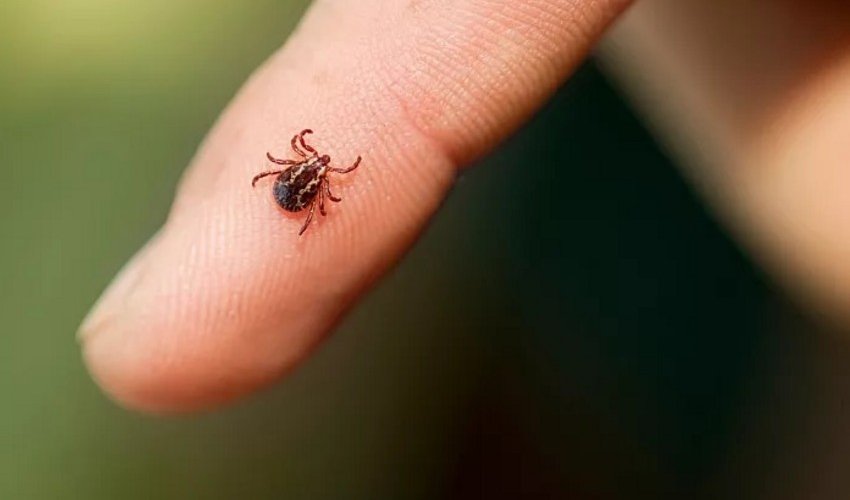Climate change helping new deadly virus to spread across Europe

Warmer temperatures are transforming Europe into the perfect habitat for ticks carrying CCHF, a deadly virus which in the worst cases results in death, reportedfrom Euronews.
A deadly disease spread by ticks and usually found in the Balkans, Africa, Asia, and the Middle East could soon spread across Europe as climate change pushes the insects to move up through the continent, according to scientists.
Experts have been ringing alarm bells over the potential spread of Crimean-Congo hemorrhagic fever, or CCHF, which the World Health Organization (WHO) has listed among its 9 "priority diseases”.
The list contains the diseases which the organization thinks are the biggest threats to public health.
Scientists’ warnings don’t refer to a hypothetical future, but to something that’s already happening in Europe, with Spain having already reported a case of the deadly disease last year.
The country actually detected its first CCHF cases in 2011 and 2016. In 2016, a man died after being diagnosed with the disease following a tick bite in Spain.
CCHF was first detected in Crimea in 1944, which is where it takes its name from.
It is caused by a tick-borne virus, Nairovirus, which belongs to the Bunyaviridae family. The virus causes severe viral haemorrhagic fever outbreaks- with symptoms like high fever, headaches, back and joint pain, stomach ache, and vomiting- and has a fatality rate of 10 to 40 percent.
In severe cases, jaundice, mood swings and sensory perceptions also appear on the list of symptoms caused by the virus, according to the WHO.
Some animals, like cattle, sheep, and goats, are susceptible to the virus. Humans can contract the virus by either being bitten by a tick carrying the virus or getting in touch with infected animal blood or tissue during and immediately after slaughter.
For this reason, a majority of cases of CCHF in humans has involved slaughterhouse workers and veterinarians.
The good news is that, should you get CCHF, there’s a treatment that has proven effective in curing the disease, the antiviral drug ribavirin.
The bad news is that, though an inactivated vaccine has been developed and is used on a small scale in eastern Europe, there is currently "no safe and effective vaccine widely available for human use,” according to WHO.
www.anews.az
A deadly disease spread by ticks and usually found in the Balkans, Africa, Asia, and the Middle East could soon spread across Europe as climate change pushes the insects to move up through the continent, according to scientists.
Experts have been ringing alarm bells over the potential spread of Crimean-Congo hemorrhagic fever, or CCHF, which the World Health Organization (WHO) has listed among its 9 "priority diseases”.
The list contains the diseases which the organization thinks are the biggest threats to public health.
Scientists’ warnings don’t refer to a hypothetical future, but to something that’s already happening in Europe, with Spain having already reported a case of the deadly disease last year.
The country actually detected its first CCHF cases in 2011 and 2016. In 2016, a man died after being diagnosed with the disease following a tick bite in Spain.
CCHF was first detected in Crimea in 1944, which is where it takes its name from.
It is caused by a tick-borne virus, Nairovirus, which belongs to the Bunyaviridae family. The virus causes severe viral haemorrhagic fever outbreaks- with symptoms like high fever, headaches, back and joint pain, stomach ache, and vomiting- and has a fatality rate of 10 to 40 percent.
In severe cases, jaundice, mood swings and sensory perceptions also appear on the list of symptoms caused by the virus, according to the WHO.
Some animals, like cattle, sheep, and goats, are susceptible to the virus. Humans can contract the virus by either being bitten by a tick carrying the virus or getting in touch with infected animal blood or tissue during and immediately after slaughter.
For this reason, a majority of cases of CCHF in humans has involved slaughterhouse workers and veterinarians.
The good news is that, should you get CCHF, there’s a treatment that has proven effective in curing the disease, the antiviral drug ribavirin.
The bad news is that, though an inactivated vaccine has been developed and is used on a small scale in eastern Europe, there is currently "no safe and effective vaccine widely available for human use,” according to WHO.
www.anews.az
Similar news
Similar news




































 Photo
Photo 



 Video
Video 

